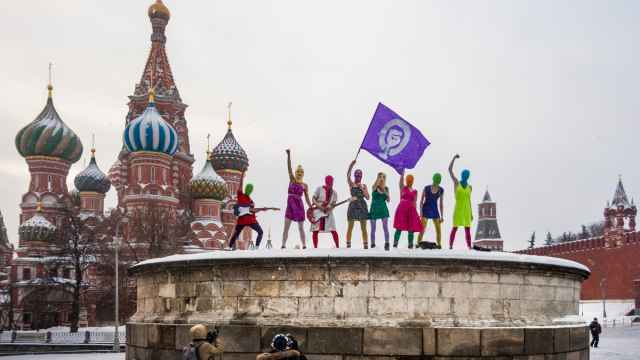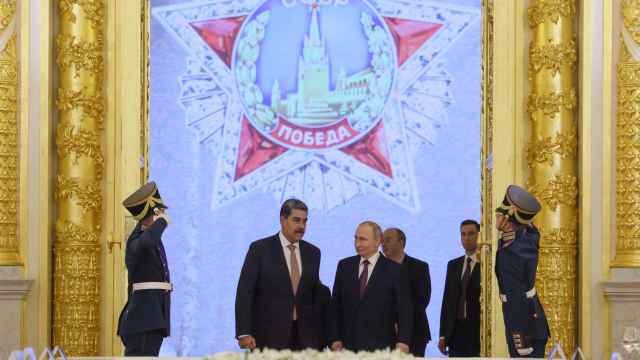Слова года 2013: Words of the Year 2013
Now that 2013 is drawing to a close, I checked out my favorite word-obsessed Russian sites for the final tallies of слова года (words of the year).
In one of my favorite competitions, more than 500 linguists, writers and other language-minded folks vote for the year's top words in various categories, including words, expression and phrases of the year. Their top word of the year was госдура — a play on госдума (state duma) that means state fool. This phrase was coined by television host Vladimir Pozner, who later said that it had just been оговорка (slip of the tongue). Perhaps it was an оговорка по Фрейду (Freudian slip)?
In 2013, the Russian parliamentarians were busy little bees. They produced more — and more bizarre — laws in a year than in the previous decade. So it's no wonder that the top expressions of the year included антисиротский закон (anti-orphan law), aka закон Димы Яковлева (the Dima Yakovlev law, named after the little boy who died in an overheated car after being adopted in the U.S.), aka закон подлецов (the law of scoundrels, named after the deputies who passed it).
Another top phrase was взбесившийся принтер (berserk printer), used to describe the law-printing machine in the Russian parliament.
Organized religion in Russia also took a linguistic hit this year with святобесие, which was defined as одержимость своей святостью или святостью своих принципов и убеждений … выплеск ненависти и гордыни под видом защиты святынь (an obsession with one's own righteousness or the righteousness of one's principles and beliefs … an outpouring of hatred and pridefulness under the guise of defending what is sacred). Someone who acts like this is святобес, what I would call a "self-righteous religious nutcase."
Святобесы are often part of another top 2013 word: религархия (religiarchy) — сращение политики и религии во властных структурах (the fusion of politics and religion in the state structures).
This year, I enjoyed several of the top-rated phrases. The winner was вот как-то так (something like that, that's about it), which has apparently become a parasite phrase used to end blog posts or statements. Since to my great shame, I'm already an over-user of linguistic hedges — как-то, как бы, вроде как (somehow, sort of, something like) — I haven't noticed it.
Most of the other 2013 phrases were terribly grim, like the play on Viktor Chernomyrdin's "хотелось как лучше, а получилось как всегда" (we wanted the best, but it turned out like usual): хотелось как лучше, а получилось навсегда (we wanted the best, but it turned out to be forever). Or: вперёд в тёмное прошлое (onward into the dark past), or всё ниже и ниже и ниже (lower and lower and lower, a play on the upbeat Soviet-era March of the Aviators: всё выше и выше — higher and higher).
The group had a new category this year, трагикомическое в языке (tragicomic in language), which I thought was масло масляное (buttery butter, i.e., tautology) since the entire list makes you смеяться через слёзы (laugh through tears). But I did like one of the words here: депардировать (to pull a Depardieu, that is, to emigrate to avoid taxes).
My favorite word for 2013 is what I've been clinging to: вера (faith). Because you have to have faith that sooner or later всё получится как можно лучше и навсегда (everything will turn out as good as possible and forever).
Maybe next year?
С Новым годом! (Happy New Year!)
Michele A. Berdy, a Moscow-based translator and interpreter, is author of "The Russian Word's Worth" (Glas), a collection of her columns.
A Message from The Moscow Times:
Dear readers,
We are facing unprecedented challenges. Russia's Prosecutor General's Office has designated The Moscow Times as an "undesirable" organization, criminalizing our work and putting our staff at risk of prosecution. This follows our earlier unjust labeling as a "foreign agent."
These actions are direct attempts to silence independent journalism in Russia. The authorities claim our work "discredits the decisions of the Russian leadership." We see things differently: we strive to provide accurate, unbiased reporting on Russia.
We, the journalists of The Moscow Times, refuse to be silenced. But to continue our work, we need your help.
Your support, no matter how small, makes a world of difference. If you can, please support us monthly starting from just $2. It's quick to set up, and every contribution makes a significant impact.
By supporting The Moscow Times, you're defending open, independent journalism in the face of repression. Thank you for standing with us.
Remind me later.







